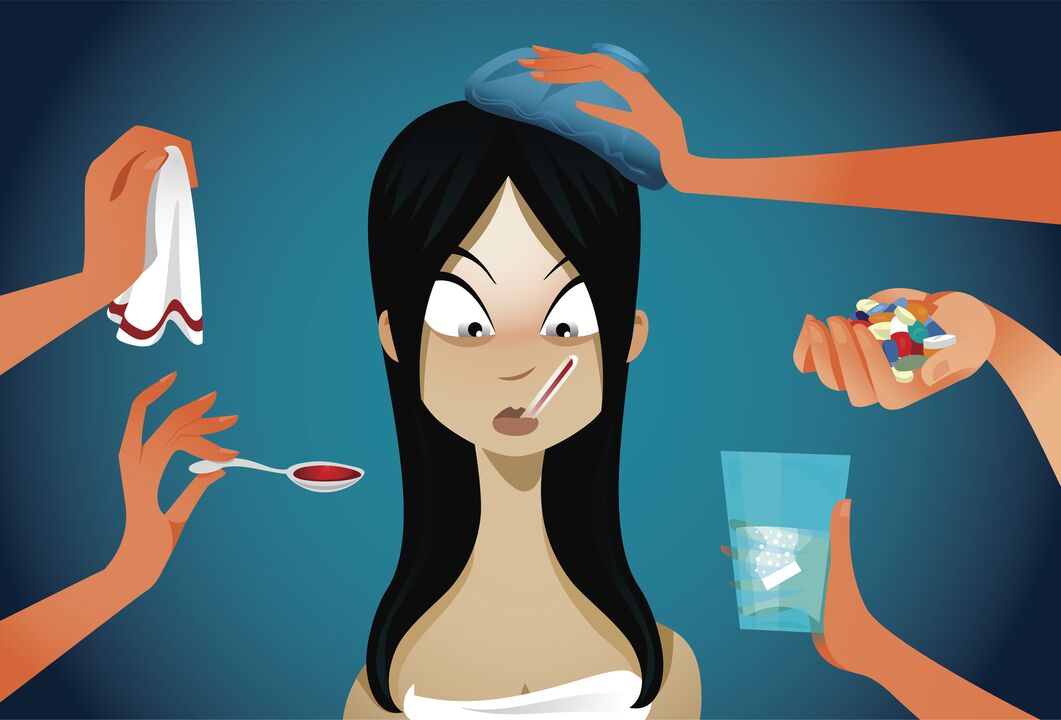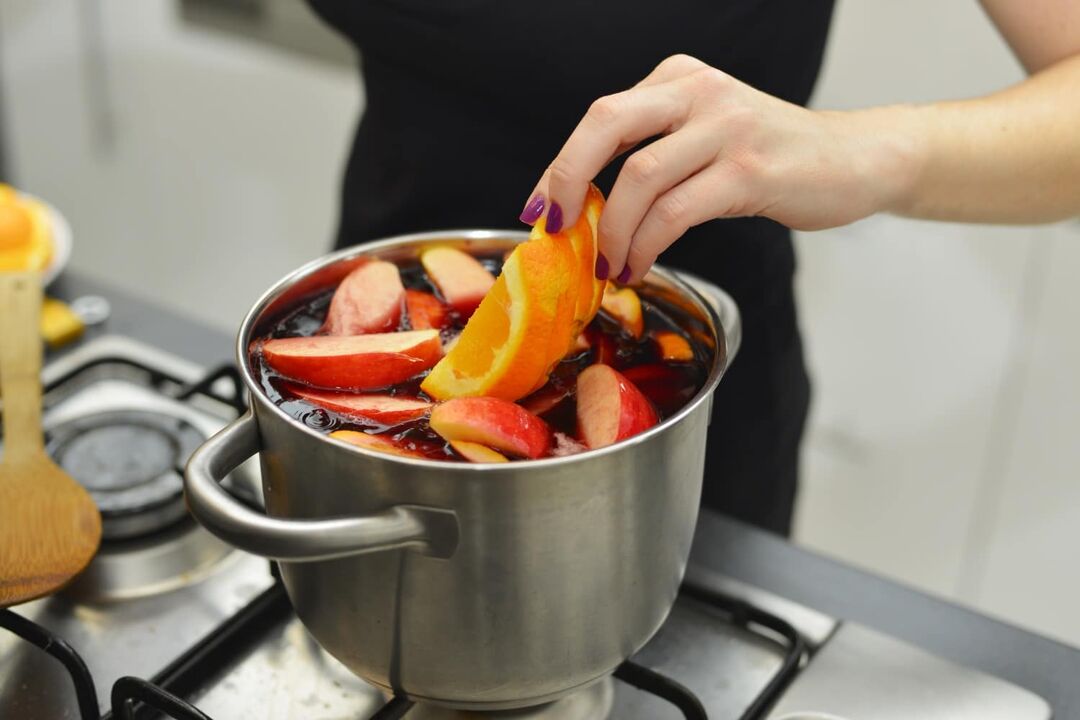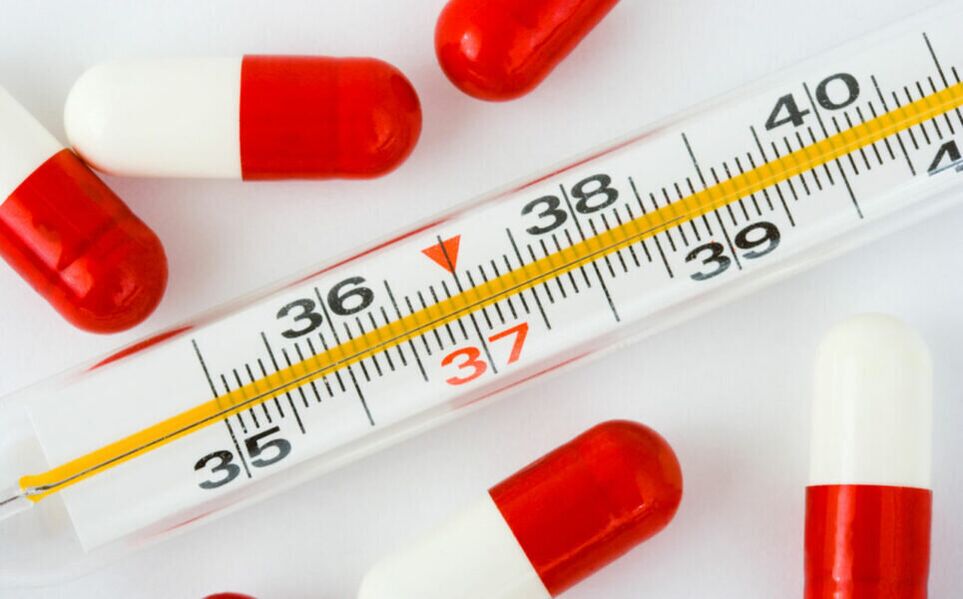A large number of the population of our country believe that during a cold, the consumption of alcoholic beverages can provide important assistance to the body on the way to recovery. But this is a big mistake. Ethanol will not only not help you bounce back faster, but it can be even more dangerous. So can you drink alcohol at room temperature during a cold? We need to understand this issue thoroughly.

Ethyl alcohol and colds
The myth that alcohol helps the body cope with colds is based on the warming effect. But it seems so, because after entering the bloodstream, ethanol causes vasodilation, and this leads to blood flow to the skin. One feels warmth, but such a sensation is deceptive, because only the skin is heated and heat energy is released quickly into the environment and causes heat loss.
It is highly not recommended to consume alcohol in cold conditions. The sensation of false warmth that appears is dangerous, the person does not feel the real temperature.
If you drink during a cold, then, oddly enough, viruses and bacteria will not spread to the edges, but will continue to exist. Alcohol only has a negative effect on the function of the immune system, which weakens the body and prevents it from fighting infections. Systematic consumption of alcoholic beverages during the disease will increase the number of pathogenic bacteria, so the course of the disease will only worsen.
But among doctors there is also the opinion that a glass of red wine can be an excellent flu prevention. Since many do not know how to drink culturally, it is better not to think of such prevention.
Ethyl alcohol and temperature
An increase in temperature during the disease is not a symptom, rather the body's response to the invasion of foreign agents. It is at a high rate on the thermometer that the immune system is capable of destroying pathogenic organisms. If the temperature does not exceed 38. 5 degrees, then you can not rush to knock it, let the body fight and form immunity, but you can not intervene. And alcohol can be that deterrent.
In any case, alcohol intake is undesirable, but even more so in the presence of temperature. If, with readings in the range 37-37. 5 ° C, this is still not so dangerous, so when on a thermometer 38 you do not have to endanger your health. Alcohol and temperature are incompatible for the following reasons:
- When the temperature rises, the body suffers from a lack of water, so you need to drink plenty of fluids, and alcohol will only worsen the condition. Ethanol dries the body even more, complicating the course of the disease.
- During the disease, the body begins to work in an emergency mode, the heart rate increases, and if you drink even during this period, the heart experiences extraordinary stress. The pulse is getting faster, blood pressure rises, the entire cardiovascular system is affected by alcohol.
- Drinking alcohol at high temperatures can trigger unexpected body reactions. At first, it may decrease a little, but then it will increase more and trigger a decline in well -being.
Keep in mind that not only the flu can be accompanied by temperature spikes, but also more serious illnesses. And drinking alcohol with them can be even more dangerous.
Why does alcohol trigger a rise in temperature?
The fact that alcohol expands blood vessels is no secret. But what causes a rise in temperature when drinking alcohol? Let's try to answer this question:
- Ethanol has dilated blood vessels, which can cause temperature spikes.
- The body in some may perceive alcohol as an allergen and react accordingly with an increase in temperature, a rash on the skin.
- Sometimes there is a congenital intolerance to ethanol, which can also increase the temperature.
- Alcohol intolerance can develop throughout life as a result of certain illnesses or allergic reactions accompanied by high fever.
- Do not forget that alcoholic beverages may contain a variety of impurities that can cause allergic reactions with an increase in temperature.
- Alcohol can cause abdominal pain, problems with the gastrointestinal tract appear, which are accompanied by fever.
- Poisoning of the body with ethanol and its decomposition products is another possible reason that after consuming alcohol during a cold, the reading on the thermometer will increase.
So it is better not to take risks and not to test your body for strength. It is more logical to call a doctor than to try to get better with alcohol.
Exceptions to drinking alcohol for colds
If the temperature does not exceed 37. 5 ° C, then you can afford to consume alcohol, but only special. This applies to mulled wine. The drink is a wine heated up to 70 ° and combined with cinnamon, ginger and cloves. This drink provides the body with useful substances and trace elements, which are important during illness. As for ethyl alcohol, when heated, it practically evaporates, therefore, its content in the finished drink is reduced to zero.
If there is a temperature, then it is better to cool the mulled wine slightly.
Beer can be used as a substitute for wine, but the drink must also be heated well so that the ethanol molecules evaporate and add spice. The beer contains vitamin B, vitamin C. But do not get carried away, a glass of wine or mulled beer will suffice.

Basal temperature and alcohol
Basal temperature charts are often compiled by women trying to conceive. It is easy to keep track of the moment of egg cell maturation, which increases the chances of fertilization. For accuracy, such graphs are set over a long period of time so that all deviations can be detected.
A woman should remember that drinking alcohol can drastically affect her basal temperature. Instructions 37. 1-37. 3 already symbolizes that new life is being born in a woman’s body. Drinking alcohol can trigger the wrong temperature rise, and the indicators cannot be considered reliable.
Is it possible to combine antipyretic drugs and alcohol
A sane person understands that any medication should not be taken at the same time as drinking alcohol. This also applies to antipyretic drugs. What happens if you take alcohol and pills for a fever? The following complications may occur:
- The likelihood of side effects increases many times over. If they may not appear in a conscious person, then in combination with ethanol, the risk increases several times.
- Ethyl alcohol increases the toxic effects of drugs on the liver, believe me, this organ will not thank you for such a gift.
- Even drinking beer during the flu and antipyretic therapy is fraught with nausea and vomiting.
How long can you take the pill after consuming alcohol? The answer can be as follows: no earlier than in 4-6 hours, if a glass of wine has been taken. Naturally, with the large amount of alcohol consumed, the time period should be increased even more.

Complications and consequences of fever after alcohol
As it turns out, alcohol does not lower the temperature, but raises it. This can lead to the following adverse consequences:
- There is a risk of damage to the nervous system.
- The danger of severe, life -threatening dehydration.
- Blood circulation is disturbed.
- Blood pressure soared.
- The blood becomes viscous and there is a risk of blood clots.
Do not delay a doctor's call if the temperature does not drop for several days and is kept at a high level. This condition becomes dangerous for the work of the whole organism. It is necessary to lower the temperature immediately if:
- Seizures were observed.
- The patient has chronic pathology of the cardiovascular system.
- There is lung disease in the diagnosis.
- There is pathology of the nervous system and mental abnormalities.
- Patients with diabetes mellitus.
Keep in mind that danger can be caused not only by alcohol taken internally, but also in the form of rubbing, and this is also often practiced. It is better to entrust flu treatment to a specialist or proven medications and not put your body to more tests.































